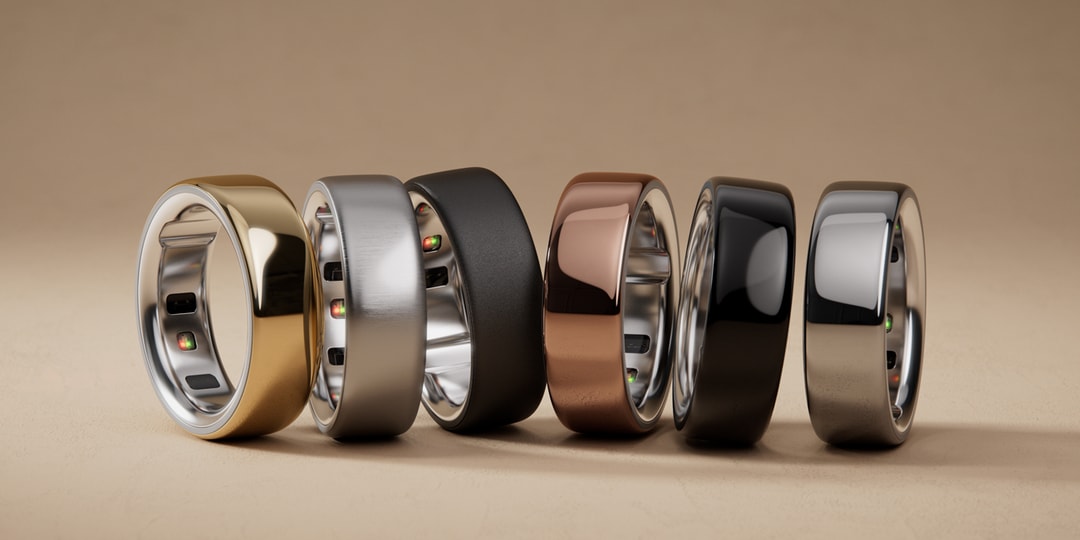Oura, the health tech company behind the minimalist smart ring (and yes, the same one that teamed up with Gucci for a luxe limited-edition drop), brought together a crowd of culturally attuned guests in NYC to have a conversation many still avoid: the uncomfortable reality of men’s health—and what the future might look like when wellness becomes as personal as your sneaker rotation. And while the ring itself might be discreet, the cultural shift it represents is anything but.
It starts with a wake-up call: men are living, on average, 5.4 years fewer than women. They’re also facing higher rates of chronic illness, sleep disorders, and mental health challenges. The crisis isn’t new—but the response is. For years, toxic norms told men to “walk it off.” Now, they’re asking different questions: Am I doing enough to maintain my health? Will I be healthy enough to enjoy the future I’m building?
Oura’s approach reframes the answer. It’s not about reacting when things go wrong. It’s about tuning into the body early, learning its signals, and acting before issues escalate. “Men are increasingly taking ownership of their health—not just reacting to illness, but working to optimize how they feel, perform, and age,” the brand points out.
That kind of framing hits different for an audience raised on performance—from the gym to the creative office. Oura’s real innovation isn’t just wearable tech. It’s translating hard data into daily insights—like how last night’s sleep might impact today’s focus, or whether your body’s truly recovered from yesterday’s push.
Using over 20 biometric signals, the ring delivers a Readiness Score, guiding wearers on when to go hard and when to step back. For the Hypebeast reader balancing the pace of grail hunts, sneaker meetups and queueing in drop lines weekly, all while trying to maintain a healthy routine, it’s the kind of intel that matters more than just steps or streaks.
But the company isn’t stopping at sleep and recovery. Metabolic health is the next frontier—and it’s one that desperately needs attention. “88% of U.S. adults are metabolically unhealthy, with men disproportionately affected,” Oura also notes. Instead of focusing on calories or restrictive routines, Oura’s system encourages balance through behavior tracking, glucose insights, and non-judgmental guidance. With the help of Stelo—a sleek, over-the-counter glucose sensor developed in partnership with Dexcom—users get real-time feedback on how food, stress, and even workout timing impact energy and insulin sensitivity. It’s less about restriction, more about rhythm. Less punishment, more pattern recognition.
What makes Oura’s approach resonate is its respect for individuality. Early adulthood? The ring tracks movement, energy, and sleep. Midlife? It leans into stress, metabolism, and glucose trends. Later life? Long-term heart health and cardiovascular aging take center stage.
“Health isn’t one-size-fits-all—and it doesn’t stand still,” the brand explains. That message lands particularly well in a world where personalization drives everything from playlists to probiotics. And with optional integrations—like syncing with an Apple Watch or logging meals with a quick photo—Oura fits into your life without taking it over. No buzz, no feed, no follower count. Just feedback.
Ultimately, what Oura is selling isn’t just health data—it’s agency. A chance to be proactive rather than reactive. A future where you know what’s happening inside your body the same way you know what’s trending next week. It’s wellness, but in a tailored silhouette. A smart ring, yes—but also a cultural nudge toward redefining strength, ambition, and longevity.
As the brand puts it plainly: “The future of health is proactive, personal, and human.” And for the men who once measured success in grails and gallery invites, there may be no flex more valuable than feeling good for the long run.
The post From Grails to Glucose, Oura’s Smart Ring Turns Health Into the New Drop appeared first on Hypebeast.




